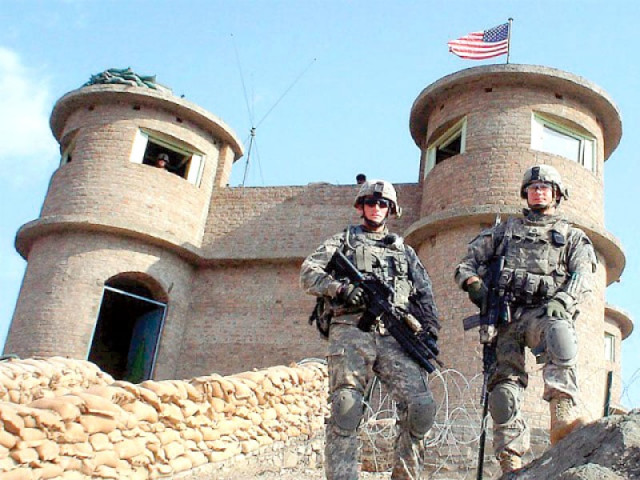Campaigners pressure Pakistan, US govts on Bagram detainees
The detainees remain under US control at the prison north of Kabul.

File photo of Afghanistan’s Bagram prison. PHOTO: FILE
The prisoners, suspected militants who include around 40 Pakistanis, some Saudis and Kuwaitis, were exempt when the United States handed final responsibility for more than 3,000 detainees at Bagram to Afghan authorities in March.
They remain under US control at the prison north of Kabul, which has been compared to the Guantanamo Bay jail in Cuba.
"The Afghan government took back 3,000 prisoners from the US. Why can we not do that for our 40 people?" lawyer Sarah Belal told a news conference in Islamabad.
The issue gets scant attention locally, but campaigners hope the incumbent government, elected in May, and the looming end of the Nato mission will inject new urgency.
"We want the new government to take notice of this issue ... It is our government's job to fight with the Americans" for the release of these detainees, Belal added.
In a report financed by the US-based Open Society Foundations, Justice Project Pakistan calls on Islamabad and Washington to work together to release the prisoners before the end of 2014.
The 50-page report, called "Closing Bagram, The Other Guantanamo", proposes a series of steps to accelerate the release of the Pakistani detainees and to facilitate their return home.
The United States faces huge challenges deciding what to do with detainees it regards as dangerous, who have been held in some cases for years without trial, an issue that has fuelled anti-American sentiment in the Muslim world.
Washington has repatriated foreign terror suspects imprisoned without trial in Bagram, but the process can drag on for years.



















COMMENTS
Comments are moderated and generally will be posted if they are on-topic and not abusive.
For more information, please see our Comments FAQ